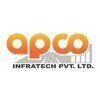Filter interviews by
Sree Thirumalai Construction Interview Questions and Answers
Be the first one to contribute and help others!
Interview questions from similar companies

Junior Engineer Civil Interview Questions & Answers
Nagarjuna Construction Companyposted on 3 May 2019
I applied via Naukri.com and was interviewed before May 2018. There were 2 interview rounds.
Interview Questionnaire
5 Questions
- Q1. What is Your Current Sallary.
- Ans.
I am currently earning $60,000 per year.
My current salary is $60,000 per year.
I am satisfied with my current salary.
I believe my salary reflects my experience and qualifications.
- Q2. Expected salary
- Q3. Negotiable sallary how much you negotiate.
- Q4. Yourself Introduction.
- Q5. About Your projects, experience and some technical question . I.e. procedure of work , productivity of workman and how to start your activities etc.
Interview Preparation Tips

Senior Accounts Officer Interview Questions & Answers
Kalpataru Projects Internationalposted on 13 May 2018
I was interviewed before May 2017.
Interview Questionnaire
4 Questions
- Q1. Good discussion with accounts team
- Q2. Having good discussion with team
- Q3. Good discussion for salary and others
- Q4. Good company for working

Structural Engineer Interview Questions & Answers
G R Infraprojectsposted on 4 Apr 2021
Interview Questionnaire
2 Questions
- Q1. Type of pile , why we provide pile,pile dia , lvup vup svup type questions
- Ans.
Piles are used in construction to transfer loads from a structure to a stronger layer of soil or rock below the surface.
Types of piles include driven piles, bored piles, and screw piles.
Piles are provided to support structures on weak or compressible soil, to resist uplift forces, or to provide lateral support.
The diameter of a pile is determined based on the load it needs to support and the soil conditions.
LVUP (Large...
- Q2. Mostly we use two types of pile (1) friction pile (2)end bearing pile
Interview Preparation Tips

Interview Questionnaire
2 Questions
- Q1. Why do you want to join Aecom.
- Q2. What kind of projects have you done? And what is the probem face of them. And how to resolve.
Interview Preparation Tips

Sales Representative and Distributor Interview Questions & Answers
Saint-Gobainposted on 18 Dec 2020
I applied via Recruitment Consultant and was interviewed in Dec 2020. There were 4 interview rounds.
Interview Questionnaire
3 Questions
- Q1. *How many year experience do have
- Q2. How long did you work in your previous company and what did you do?
- Q3. What do you expect For your next job
Interview Preparation Tips

Interview Questionnaire
6 Questions
- Q1. Percentage of steel in pile
- Ans.
The percentage of steel in a pile varies depending on the type and design of the pile.
The percentage of steel in a pile can range from 0% to over 90%.
The type of pile (e.g. steel, concrete, timber) and its design (e.g. diameter, length, wall thickness) determine the percentage of steel.
Steel piles typically have a higher percentage of steel than other types of piles.
The percentage of steel in a pile can also affect its
- Q2. Pile built-up above cut off level as per IS code
- Ans.
Pile built-up above cut off level as per IS code
IS code specifies the maximum allowable pile length above cut off level
Pile length above cut off level should not exceed 3 times the pile diameter
Built-up pile above cut off level can cause structural instability and failure
- Q3. Pile vertical tolerance as per IS code
- Ans.
Vertical tolerance for piles as per IS code
As per IS 2911-1:2010, the vertical tolerance for piles is +/- 25mm
This tolerance is applicable for both driven and cast-in-situ piles
The tolerance is measured at the top of the pile and at intervals of 3m along the length
If the deviation exceeds the tolerance limit, the pile may need to be rejected or remedial measures taken
- Q4. Pile concrete consumption +- tolerance
- Ans.
Pile concrete consumption tolerance depends on various factors.
Pile diameter and length
Concrete mix design
Placement method
Quality control measures
Environmental conditions
Tolerance typically ranges from 5-10% of estimated consumption
Regular monitoring and adjustment of concrete consumption is necessary
- Q5. Unit weight of steel
- Ans.
Unit weight of steel is 7850 kg/m³
The unit weight of steel is the weight of a specific volume of steel
It is measured in kilograms per cubic meter (kg/m³)
The unit weight of steel is 7850 kg/m³
This value may vary slightly depending on the composition and manufacturing process of the steel
- Q6. Contractor MB related

Structural Engineer Interview Questions & Answers
Megha Engineering & Infrastructuresposted on 24 Oct 2020
I applied via Naukri.com and was interviewed in Sep 2020. There were 3 interview rounds.
Interview Questionnaire
4 Questions
- Q1. How much cement used for making 1m³ concrete
- Ans.
The amount of cement used for making 1m³ of concrete varies depending on the desired strength and type of concrete.
The cement content typically ranges from 300 to 400 kg/m³ for general-purpose concrete.
For high-strength concrete, the cement content can be as high as 500 kg/m³ or more.
The water-cement ratio also affects the amount of cement required.
Admixtures and additives may be used to modify the properties of the co...
- Q2. 360 kg
- Q3. How much steel used for 1m³ concreting
- Ans.
The amount of steel used for 1m³ concreting varies depending on the type of concrete and the structural requirements.
The steel used in concrete is typically in the form of reinforcing bars (rebar) or welded wire mesh.
The amount of steel required for 1m³ of concrete depends on the structural requirements and the type of concrete being used.
For example, a standard reinforced concrete slab may require 70-100 kg of steel p...
- Q4. This answer given by a formula & some thumbrules of this answer
Interview Preparation Tips

Interview Questionnaire
11 Questions
- Q1. Structural welding codes, Bridge welding codes
- Q2. Process piping works
- Ans.
Process piping works involve the installation, inspection, and maintenance of pipes used in industrial processes.
Process piping works include the design, fabrication, and installation of pipes for conveying fluids or gases in industrial settings.
QA QC engineers ensure that the piping systems meet the required standards and specifications.
Inspection and testing of process piping is done to check for leaks, pressure, and...
- Q3. Bolts tightening procedure
- Ans.
Bolts tightening procedure involves following a specific torque value and sequence to ensure proper fastening of bolts.
Check the torque value specified in the design or manual
Use a torque wrench to tighten the bolts to the specified value
Tighten the bolts in a specific sequence to ensure even distribution of load
Recheck the torque value after tightening all bolts
Record the torque value and sequence for future reference
- Q4. Bolts testing and torqueing sequences.
- Q5. Hydrotest and pneumatic test for piping
- Ans.
Hydrotest and pneumatic test are methods used to test the integrity of piping systems.
Hydrotest involves filling the piping system with water and pressurizing it to a specified level for a set duration.
Pneumatic test involves filling the piping system with compressed air or nitrogen and pressurizing it to a specified level for a set duration.
Both tests are used to ensure that the piping system can withstand the expecte...
- Q6. Able to refer codes and procedures.
- Q7. Painting knowledge
- Q8. Able to repair painted surface area.
- Q9. Clients and inspection agency
- Q10. Clients faced interviews.
- Q11. Job training

Electrical OHE Engineer Interview Questions & Answers
KEC Internationalposted on 9 Sep 2020
I applied via Company Website and was interviewed in Aug 2020. There were 3 interview rounds.
Interview Questionnaire
8 Questions
- Q1. Da eraction. Bracket
- Q2. Earth eraction bracket eraction
- Q3. Goyrod eraction
- Q4. Bracket adjustment
- Q5. Torlly chaking
- Q6. Mast eraction
- Q7. Acc wair
- Q8. Conterwate
Interview Preparation Tips

I applied via Recruitment Consultant and was interviewed in Oct 2020. There were 4 interview rounds.
Interview Questionnaire
1 Question
- Q1. Regarding Welding process, Painting, Coating System, NDT Inspection, Piping and Structural codes and acceptance.
Interview Preparation Tips
Tell us how to improve this page.
Interview Questions for Popular Designations
- Analyst Interview Questions
- Software Engineer Interview Questions
- Software Developer Interview Questions
- Intern Interview Questions
- Consultant Interview Questions
- Associate Software Engineer Interview Questions
- Graduate Engineer Trainee (Get) Interview Questions
- Java Developer Interview Questions
- Show more
Interview Questions from Similar Companies
Sree Thirumalai Construction Reviews and Ratings
based on 4 reviews
Rating in categories
|
Civil Site Engineer
3
salaries
| ₹2.2 L/yr - ₹18 L/yr |

Larsen & Toubro Limited

L&T Construction

Tata Projects

Megha Engineering & Infrastructures
- Home >
- Interviews >
- Sree Thirumalai Construction Interview Questions








